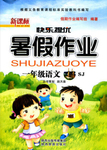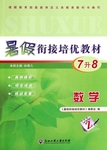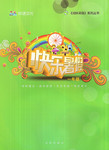题目内容
While taking a walk with the professor, who was commonly called the students’ friend, the young man saw lying beside the 16 a coat and a pair of old shoes, 17 ---- he supposed---- belonged to a 18 man who was working in the field nearby.
The student wanted to play a 19 on the man --- to hide his shoes and wait to see his20 when he cannot find them. 21 , the professor advised him never to 22 himself at the cost of the poor and 23 him to put a coin in each shoe and watch how this would 24 him.
The student did so and they both 25 themselves behind bushes. The poor man soon finished his work, and came across the field to the path where he had26 his coat and shoes. 27 putting on his coat he put his foot into one of his shoes, but felt something 28 . He bent down to see what it was, and 29 a coin. He stared at the coin in surprise, turned it around, and looked at it 30 . Then he looked around, but no person was seen. He now put the money into his pocket, and began to31 the other shoe. His 32 was doubled on finding another coin. He fell upon his knees33 , looked up and uttered (说出) aloud a thanksgiving in which he spoke of his wife, sick and helpless, and his children without bread.
The student stood there 34 moved, and his eyes were filled with tears. It was not until then that he felt the true meaning of these words, which he35 understood before --- It is more blessed to give than to receive.
16. A. field B. path C. woods D. grass
17. A which B. what C. when D. that
18. A. rich B. strong C. poor D. tall
19. A. trick B. part C. role D. game
20. A. joy B. anxiety C. fear D. sadness
21. A. Besides B. Instead C. Therefore D. However
22. A. praise B. puzzle C. please D. honor
23. A. ordered B. checked C. promised D. encouraged
24. A. suggest B. improve C. affect D. wake
25. A. hid B. stood C. seated D. lay
26. A. forget B. left C. lost D. missed
27. A. Though B. Since C. Unless D. While
28. A. new B. soft C. old D. hard
29. A. invented B. received C. found D. accepted
30. A. little by little B. again and again C. sooner or later D. more or less
31. A. put up B. put down C. put on D. put out
32. A. doubt B. worry C. surprise D. pity
33. A. excitedly B. eagerly C. peacefully D. miserably
34. A. slightly B. deeply C. weakly D. highly
35. A. never B. already C. still D. ever
BACAB DCDCA BDDCB CCABA

 新课标快乐提优暑假作业陕西旅游出版社系列答案
新课标快乐提优暑假作业陕西旅游出版社系列答案 暑假衔接培优教材浙江工商大学出版社系列答案
暑假衔接培优教材浙江工商大学出版社系列答案 欣语文化快乐暑假沈阳出版社系列答案
欣语文化快乐暑假沈阳出版社系列答案That summer I drank every day, everywhere I went. I had a bottle in my drawer next to me and a bottle next to my bed. I never did another drug, but I drank so much that my family finally asked a priest for help. My father gave me a bottle of medicine for alcoholism that produces unpleasant symptoms when users drink alcohol. I drank while taking it, which made me very sick. And I still drank.
When the priest came, he said, "Jimmy, doctors said that with your diseases and the amount of drinking you’re doing, you’d be lucky to live another six months. So your choice is either to stop drinking and live or to continue drinking and die within six months.”
I said, "I know I can't stop, so guess I'll have to die." The priest told my family what I said. My little brother–who is like my soul mate, looked at me with tears in his eyes and said, "But we don't want you to die." All I could think of was how desperately I had to get out of that room at that moment and have a drink.
But I finally stopped drinking. I was on the care team of my dentist Russell. A lot of people in New York knew him. At the time he was the most famous dentist in the city. He drank heavily and was also with AIDS, so I was selected to be on his care team. Everybody on the team was sober (清醒) but me. He went through dementia (痴呆) and died so quickly before my eyes. I stopped drinking and I’ve been with the disease for 35 years now.
【小题1】 Why did the author’s father give him the bottle of medicine?
| A.He wanted him to cure his illness. |
| B.He was trying to keep him dying. |
| C.He thought the medicine could make him sick. |
| D.He believed it could prevent him drinking. |
| A.The author would die after six weeks. |
| B.The author was too lucky to live for six months. |
| C.The author could hardly live for six months. |
| D.The author’s luck was only six months. |
| A.The dentist Russell helped him to stop it. |
| B.He was persuaded by the dentist Russell’s death. |
| C.His care team managed to inspire him. |
| D.His little brother’s soul saved him. |
| A.Drinking heavily increases AIDS patients’ illness. |
| B.Priests can cure many AIDS patients’ illnesses. |
| C.Drug taking and heavily drinking can cure AIDS patients. |
| D.Team work and patience can cure AIDS patients. |
